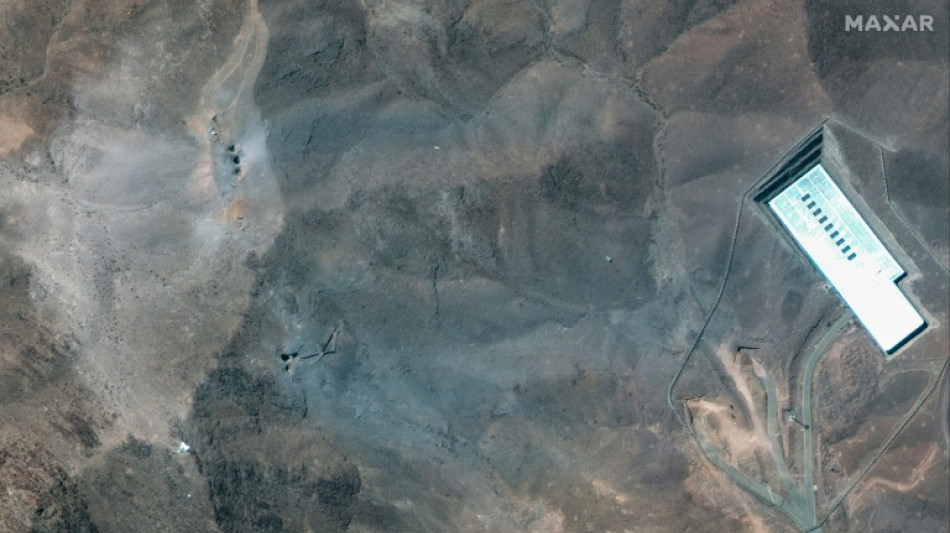
-
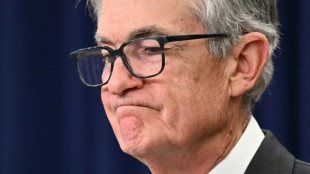 Stocks slip as investors await key Fed speech
Stocks slip as investors await key Fed speech
-
Hong Kong mogul Jimmy Lai's 'punditry' not criminal: lawyer
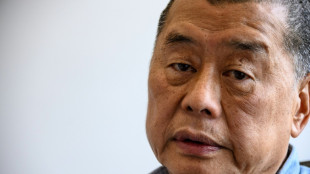
-
 Bournemouth sign 'proven winner' Adli from Leverkusen
Bournemouth sign 'proven winner' Adli from Leverkusen
-
Israel pounds Gaza City as military takes first steps in offensive
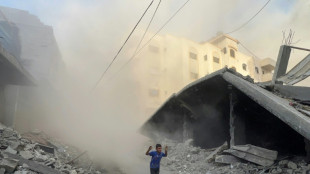
-
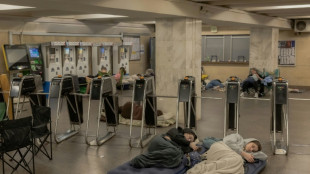 First security guarantees, then Putin summit, Zelensky says
First security guarantees, then Putin summit, Zelensky says
-
Suspended Thai PM testifies in court case seeking her ouster

-
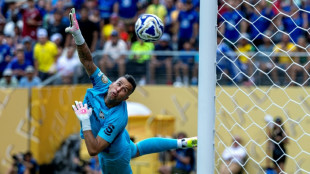 Shilton congratulates Brazilian goalkeeper Fabio on breaking record
Shilton congratulates Brazilian goalkeeper Fabio on breaking record
-
Markets mixed as investors await key Fed speech
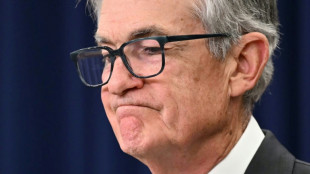
-
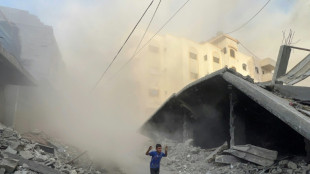 Israel pounds Gaza City after offensive gets green light
Israel pounds Gaza City after offensive gets green light
-
Fraser-Pryce seeks Brussels boost ahead of Tokyo worlds

-
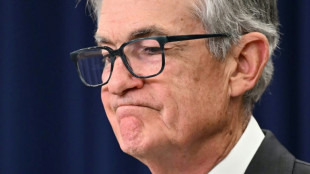 Asian markets mixed as investors await key speech
Asian markets mixed as investors await key speech
-
Ten hurt, 90 arrested as match abandoned following fan violence in Argentina
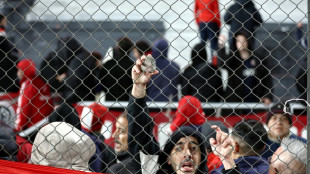
-
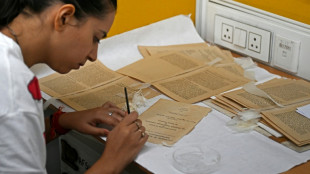 Indian heritage restorers piece together capital's past
Indian heritage restorers piece together capital's past
-
Australian Rules player suspended for homophobic slur
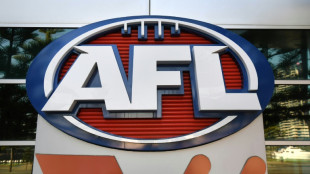
-
 Online behaviour under scrutiny as Russia hunts 'extremists'
Online behaviour under scrutiny as Russia hunts 'extremists'
-
Malaysia rules out return of F1 over costs
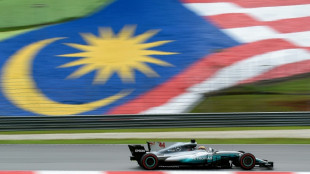
-
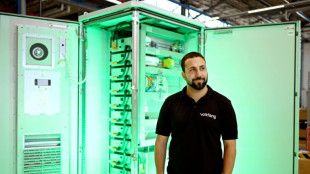 German firm gives 'second life' to used EV batteries
German firm gives 'second life' to used EV batteries
-
Wallabies great Will Genia announces retirement at 37

-
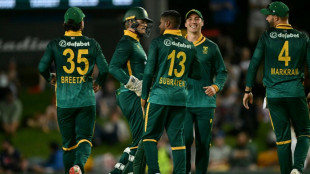 South Africa spinner Subrayen cited for suspect bowling action
South Africa spinner Subrayen cited for suspect bowling action
-
Menendez brothers face parole board seeking freedom after parents murders
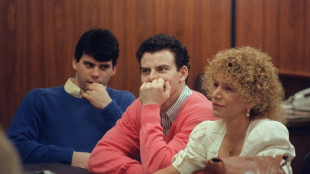
-
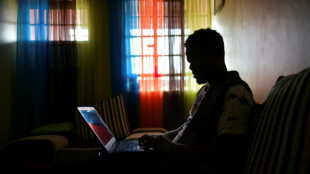 Weaponising the feed: Inside Kenya's online war against activists
Weaponising the feed: Inside Kenya's online war against activists
-
Africa could become 'renewable superpower', says Guterres
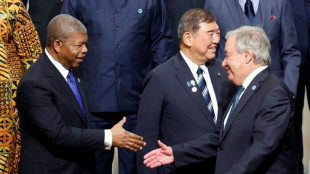
-
 Suspended Thai PM in court for case seeking her ouster
Suspended Thai PM in court for case seeking her ouster
-
Errani, Vavassori retain US Open mixed doubles title in revamped event

-
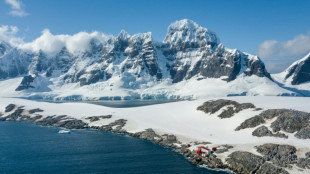 Surging tourism is polluting Antarctica, scientists warn
Surging tourism is polluting Antarctica, scientists warn
-
Ten Hag hoping for fresh start at rebuilding Leverkusen

-
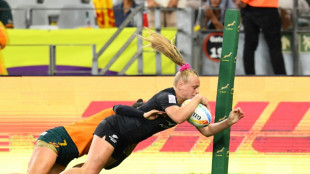 Five players to watch at the Women's Rugby World Cup
Five players to watch at the Women's Rugby World Cup
-
Suarez fills Messi void as Inter Miami beat Tigres 2-1

-
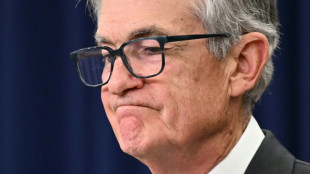 Asian markets creep up as investors await key speech
Asian markets creep up as investors await key speech
-
New Zealand spy service warns of China interference
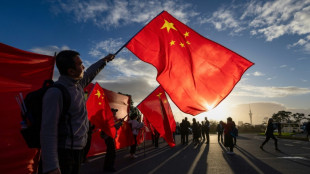
-
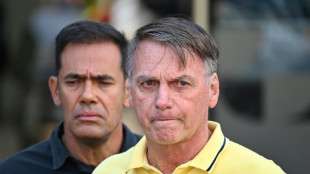 Brazil police accuse Bolsonaro and son of obstructing coup trial
Brazil police accuse Bolsonaro and son of obstructing coup trial
-
Israel approves major West Bank settlement project
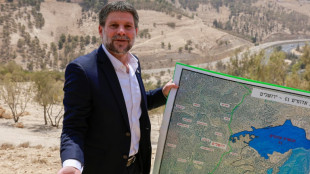
-
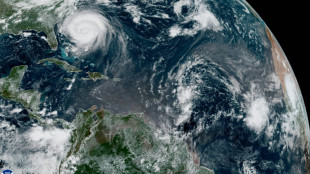 North Carolina braces for flooding from Hurricane Erin
North Carolina braces for flooding from Hurricane Erin
-
Pensioners on the frontline of Argentina's fiery politics
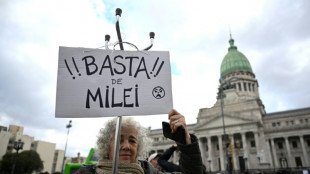
-
 'Curly is beautiful': Tunisian women embrace natural hair
'Curly is beautiful': Tunisian women embrace natural hair
-
Sudanese lay first bricks to rebuild war-torn Khartoum
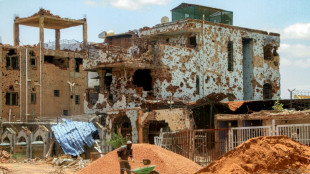
-
 Newcastle host Liverpool amid Isak stand-off, Spurs test new-look Man City
Newcastle host Liverpool amid Isak stand-off, Spurs test new-look Man City
-
Texas Republicans advance map that reignited US redistricting wars
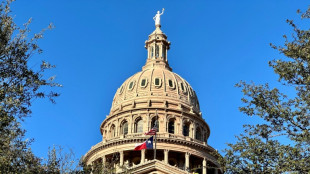
-
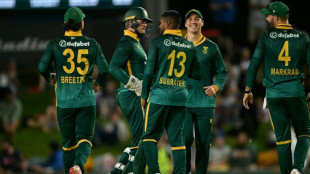 South Africa spinner Subrayen cited for suspect action
South Africa spinner Subrayen cited for suspect action
-
Meme-lord Newsom riles Republicans with Trump-trolling posts
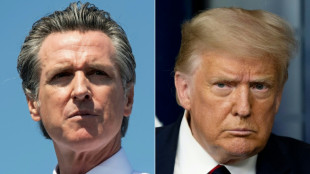
-
 Messi ruled out of Miami's Leagues Cup quarter-final v Tigres
Messi ruled out of Miami's Leagues Cup quarter-final v Tigres
-
Trump raises pressure on Fed with call for governor to resign

-
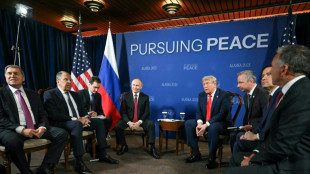 Trump flirts with Ukraine security, with narrow margins
Trump flirts with Ukraine security, with narrow margins
-
US sends three warships near Venezuela coast
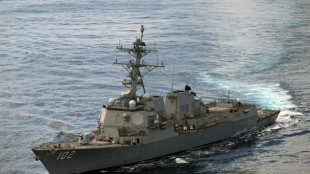
-
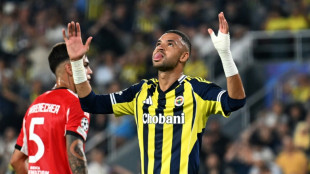 Celtic held by Kairat Almaty in Champions League play-off
Celtic held by Kairat Almaty in Champions League play-off
-
North Carolina braces for flooding from 'Enormous' Erin
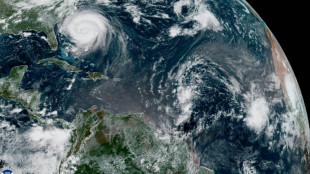
-
 Arsenal could hijack Spurs' bid for Palace star Eze - reports
Arsenal could hijack Spurs' bid for Palace star Eze - reports
-
Namibian Shalulile equals South African scoring record
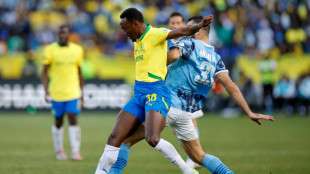
-
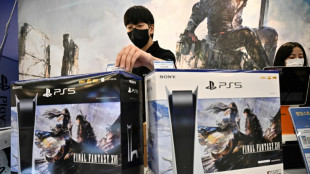 PlayStation prices rise as US tariffs bite
PlayStation prices rise as US tariffs bite
-
Games publisher kepler on cloud nine after smash hits


Where is Iran's uranium? Questions abound after US strikes
After President Donald Trump bragged US strikes had "obliterated" Iran's nuclear capabilities, officials cautioned it was still too soon to assess the impact on the country's nuclear programme.
Many questions remain after Sunday's strikes, especially about the whereabouts of Iran's sensitive stockpile of uranium enriched to 60 percent -- a short step from the 90 percent required for a nuclear weapon.
- Where is Iran's enriched uranium? -
The US attacks, carried out by B-2 stealth bombers, targeted three Iranian nuclear sites: Isfahan and Iran's main enrichment plants in Fordo and Natanz.
While significant damage has been reported, the International Atomic Energy Agency (IAEA) has voiced concern about Iran's stockpile of near-weapons-grade uranium.
Tehran has an estimated 408.6 kilogrammes of uranium enriched to 60 percent, according to the UN nuclear watchdog, whose inspectors last saw that stockpile on June 10.
That material, if further refined, would theoretically be sufficient to produce more than nine nuclear bombs.
IAEA head Rafael Grossi on Monday demanded access to Iran's nuclear sites, saying the agency needs to "account for" the uranium stockpile.
Concerns about the fate of the sensitive stockpile have loomed large. On June 13, the day Israel began its Iran offensive, Iranian Foreign Minister Abbas Araghchi sent a letter to the IAEA, announcing the implementation of "special measures to protect nuclear equipment and material".
Days before the US attacked, satellite imagery showed vehicles near Fordo's entrance.
Prime Minister Benjamin Netanyahu said Israel had "interesting intelligence" on the matter, declining to elaborate.
Israel announced Monday it had carried out strikes to block access routes to Fordo.
"It will be difficult if not impossible to track down all of Iran's 60 percent enriched uranium, stored in small canisters that are easily transportable by car," Kelsey Davenport, an expert with the Arms Control Association, told AFP.
"They (Iranians) no longer have the capacity to turn that stockpile of highly enriched uranium to weapons-grade uranium, and that was really the goal there," US Vice President JD Vance told ABC News.
He added the Trump administration would deal with the uranium "in the coming weeks".
- Can Iran still make a nuclear bomb? -
Analysts have been treading carefully when addressing this issue.
Before the attacks, Iran had about 22,000 centrifuges -- the machines used to enrich uranium. Many of them were damaged when Natanz was hit, the IAEA head said.
Grossi also said "very significant damage" is expected to have occurred at Fordo, "given the explosive payload utilised and the extreme vibration-sensitive nature of centrifuges".
Experts however say that it is unclear how many centrifuges Iran has, with some of them believed to be stored at unknown locations.
With "60 percent enriched uranium and a few hundred advanced centrifuges, Iran still has the capability to weaponise, and now there is more political impetus to dash for a bomb", said Davenport.
- What are the proliferation risks? -
Before the conflict, the IAEA said it had "no indication" of the existence of a "systematic programme" in Iran to produce a nuclear weapon. But without access to nuclear sites, the agency no longer has oversight.
Grossi warned Monday that the "global non-proliferation regime that has underpinned international security... could crumble and fall", urging parties to return to diplomacy.
Iran ratified the nuclear non-proliferation treaty (NPT) in 1970, committing it to declare its nuclear material to the IAEA. But it has recently begun preparing the grounds for a possible withdrawal from the treaty, accusing the agency of acting as a "partner" in Israel's "war of aggression".
Reza Najafi, Iran's ambassador to the IAEA, said Monday the "unlawful act of aggression" by the United States had "delivered a fundamental and irreparable blow" to the non-proliferation regime.
"I do think there is a major risk that Iran withdraws from the NPT and expels inspectors, or simply does not provide them with access to key sites," said Eric Brewer of the US research institute Nuclear Threat Initiative (NTI).
He added that Iran could also "over time, build (a) covert" programme like North Korea, which withdrew from the NPT in 2003 and went on to become a nuclear-armed power.
S.AbuJamous--SF-PST
